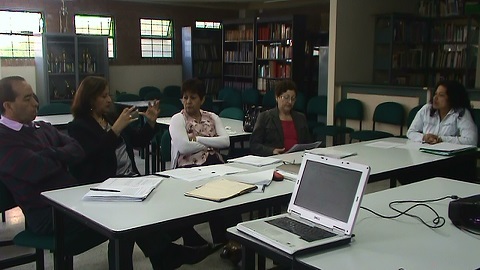Education

Argumentation in a Science Class and its Teaching
The challenge of promoting argumentation in a science class requires teachers to engage in critical reflection processes. This participation allows them to make sense of their conceptions on argumentation and its teaching and facilitates the implementation of methodological proposals that pursue such aim. In this research, we show how the participation of a group of teachers in a process of critical reflection on argumentation and its teaching changes their epistemic, didactic and conceptual conceptions on this competence as well as the structure and quality of their arguments.
References
Ruiz, F.; Márquez, C.; Tamayo, O. (2011). Teachers’ change of conceptions on argumentation and its teaching. Bruguière et al. (Eds.) 9th International ESERA Conference, p. 31-37. Lión, Francia. [ISBN: 978-9963-700-44-8].
Argumentation is a cognitive-linguistic competence needed, not only to allow the advance of scientific knowledge, but also to understand and construct school science. Likewise, argumentation is a form of speech that needs to be explicitly promoted in the classroom. Therefore, it is necessary to recognize the importance of teachers’ involvement in critical reflection processes that facilitate the awareness of their conceptions on argumentation and its teaching.
This awareness is a fundamental step to change practices. In this sense, this research sought to identify changes in five teachers who participate in a process of critical reflection. Such aspects are gathered in four items:
- Epistemological: how teachers relate argumentation and science construction.
- Conceptual: how teachers assume reasoning in science.
- Didactic: how teachers conceive their teaching in the classroom.
- Structural: how teachers who participate in this research argue.
This research took place in an official educational institution in the city of Manizales - Colombia, during a school year, with five elementary education teachers.

Figure 1: Teachers that participate in the research.
The results show significant changes in the first three aspects. In the epistemological aspect, the recognition of a more justified relationship between argumentation and science construction was achieved. In the conceptual aspect, teachers changed their conception on argumentation from a mere informative process to a dialogic process and as a tool to assess learning in the classroom. In the didactic aspect, there were two changes in teachers: Firstly, the conviction that working in small interactive groups is a platform for empowerment and development of argumentation in the classroom; secondly, the recognition of the relation student-teacher-knowledge-context as a necessary criterion for argumentative processes development. That criterion is related to the functional concept of argumentation, which requires valuing subjects, their knowledge and opinions, and the context in which dialogic interactions take place. In the structural component, there were no significant changes, which invites to further promotion of discussions about argumentative practices.
Top left figure by iStockphoto/VLADGRIN.
Conxita Márquez
Department of Teaching of Mathematics and Experimental Sciences
2025 Universitat Autònoma de Barcelona
B.11870-2012 ISSN: 2014-6388
